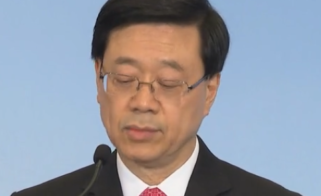Consulting firm Mercer has launched a monthly index, the Mandatory Provident Fund Satisfaction Index, which will measure the satisfaction level of Hong Kong residents toward the Mandatory Provident Fund (MPF) system.
“We believe that the survey will provide useful insights on the MPF system and hopefully to improve understanding of satisfaction with the scheme,” said Billy Wong, Mercer’s wealth business leader for Hong Kong, China, and Korea.
The MPF is a compulsory pension fund for retirees in Hong Kong. In its inaugural survey for April, the index registered a 50.3 on a scale of a possible 100, with only 11% of respondents saying they were “satisfied” with the MPF system. Nearly 60% indicated they are “dissatisfied,” and only 31% deemed the system “fair.”
The survey found that younger employees seem to be less satisfied with the MPF system than their older counterparts. The average satisfaction index for respondents aged 55 or above was 66.4, compared with 47.3 for those aged 35 to 54, and 45.59 for those aged 20 to 34.
“To younger workers, retirement planning may seem like a distant matter which does not require immediate attention, while some may wish they had the funds to invest in other ventures,” said Wong. “The Mercer MPF SI offered us very interesting insights as to the different needs and sentiments towards MPF or retirement among employees in different life stages. These differences will be important for MPF providers and government bodies to keep in mind when devising retirement planning or MPF communications and education.”
The monthly survey was conducted among Hong Kong workers aged 20 to 65 on Mercer’s behalf by market research firm Nielsen. The survey examined knowledge, understanding, and satisfaction with the MPF system, as well as with current MPF-related developments.
The survey results also showed a lack of confidence among employees that the MPF will meet their retirement needs. Although 43% of respondents had average expectations when asked if the MPF would cover their post-retirement expenses, 36.8% had “low” or “very low” expectations, while only 21.2% had high expectations.
The survey also found a positive correlation between how knowledgeable a respondent is of the MPF system and their satisfaction with it. The average satisfaction index for those who deemed themselves “not knowledgeable” about the MPF system was 42.1, compared to 47.5 for those who considered themselves as having “average” knowledge, and 52.8 for those who considered themselves “knowledgeable.”
“Depending on individual needs and goals, it is good practice for employees to review their MPF portfolios at least once a year,” said Wong. “It is important for all stakeholders, including the government, MPF providers, and employers to work together to fill this knowledge gap.”
